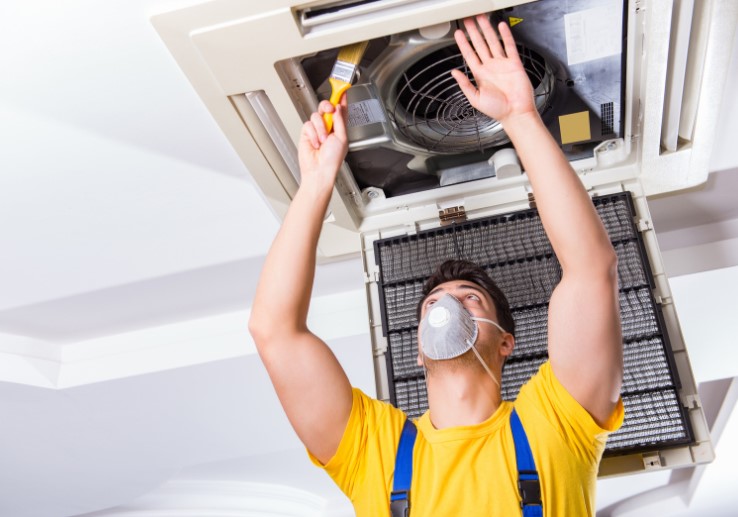The average lifespan of an air conditioner is 15 to 20 years, but you may notice signs of wear and tear long before that. Depending on the model and how often you use your AC, it’s possible to begin experiencing issues around the 10-year mark. Many things can make your air conditioner last longer, like getting annual maintenance, but you can only delay replacement for so long.
If you are wondering when you need to replace your air conditioner, this post is for you. Below are five things you can do to diagnose your air conditioner. If you realize that it’s time to upgrade, our air conditioning replacement service is always available.
Check Your Previous Energy Bills
You should look at your last three energy bills to notice whether there’s been an increase in usage. Even though your air conditioner might run, older units tend to consume far more energy as they age. This can result in extremely high energy bills despite the fact your use hasn’t changed.
It can also be helpful to ask friends and family about their own energy bills and compare your rates. If you discover that you’re paying double than other people, it’s a surefire sign that you need a professional to take a look at your unit.
Raise Your Temperature
An air conditioner that needs replaced may run the same no matter what you set your temperature to. Raise your thermostat by one or two degrees and see if there is any change in how it cools. If your air conditioner still runs constantly, then there is either a problem with the thermostat or the unit is too old to moderate its air flow. When this happens, you wind up overspending on energy even if your home is cool.
On the same note, you might find that no matter how low you set your thermostat, the air conditioner does not effectively cool your home. As soon as it shuts off, the temperature rises almost instantly.
Listen for Strange Sounds
As parts age and break down, they may lead to mechanical malfunctions whenever you run your air conditioner. Strange noises like banging, wheezing, hissing or screeching all indicate a problem with the unit that needs to be checked by a professional. Sometimes, old air conditioners can be retrofitted, but ones that are no longer viable should be replaced ASAP. Leaving strange noises running when your AC turns on or off can also lead to structural damage that is more expensive to repair.
Check Your Circuit Breaker
Another sign your AC is dying is that it constantly trips. Electrical misfiring can cause your air conditioner to spontaneously shut off, which causes you to go without cooling when you need it most. Repeated trips to the circuit breaker indicate that the hardware is no longer able to hold a current, and the entire unit is likely to give out soon. It’s also imperative to address electrical problems to avoid potential fires and power shorting.
If you suspect there is an electrical problem with your air conditioner, contact a professional right away. You should never attempt to make any repairs to your AC’s electrical components by yourself.
Look for Leaking Refrigerant
If your AC is leaking refrigerant, then it may not be able to properly cool air anymore. Additional signs of refrigerant issues include constantly blowing warm air, moisture and puddles near your air conditioner. As the compressor runs lower and lower on refrigerant, the air conditioner’s ability to cool your home will falter. Eventually, it will not be able to cool warm air and shut down completely.
You can avoid going without AC by getting help for any issues ASAP. Although you may think you can live with certain troubles, warning signs like these indicate your air conditioner is reaching the end of its lifespan. We may be able to extend it or help you choose a newer, energy-efficient model for your home.
Contact us today to schedule a service call with one of our qualified technicians.

